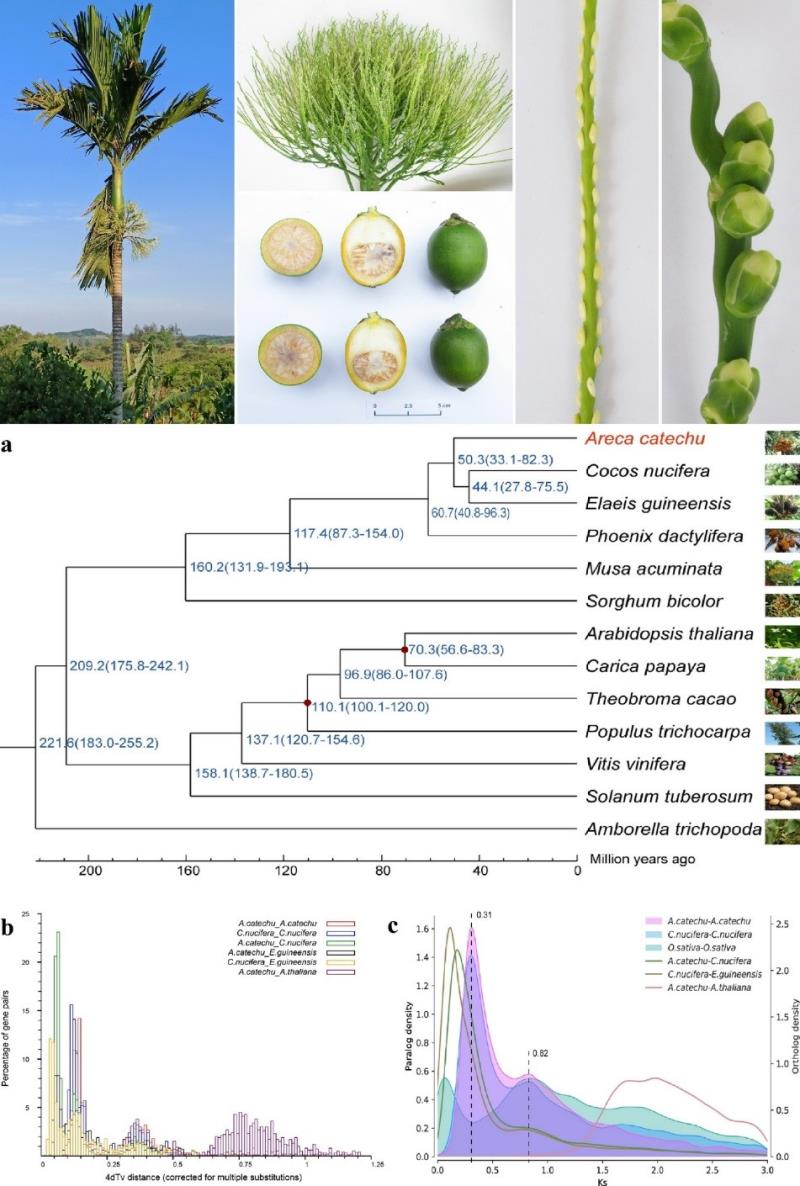Recently, the Coconut Research Institute of CATAS and BGI completed the genome sequencing, splicing and sequence analysis of Areca catechu L., and completed and announced the whole genome sequencing of Hainan areca L for the first time in the world.

In this study, through the combination of Illumina and pacbio data and Hi-C mapping technology, the reference genome assembly at the chromosome level of areca nut "Reyan No. 1" was completed. The areca nut genome size was 2.51gb, and the scaffold N50 was 1.7mb. The genome of 16 chromosomes was further assembled through Hi-C assisted assembly technology, and the N50 was 172mb.
The study found that the areca nut genome contains 31571 protein coding genes, 92.92% of which have obtained functional annotation, and the gene families involved in the biosynthesis of arecoline, flavonoids, anthocyanins, monoterpenes and their derivatives show different degrees of enrichment and expansion. The release of the whole genome of areca nut has opened the post genome era of areca nut. The "Reyan No. 1" areca nut reference genome will provide an important reference system for the resequencing of areca nut individuals, the mining of functional genes (disease resistance, high quality, specificity) and the formation mechanism of important qualities (soft fiber, high arecoline, etc.), and the whole genome association analysis, which is of milestone significance for areca molecular biology research and accelerating the pace of breeding.
The research result chromosome scale genome assembly of areca palm (Areca catechu) was published online in molecular ecology resources, a journal in the first district of JCR, Chinese Academy of Sciences. Yang Yaodong, a researcher and Huang Liyun, an associate researcher of the C of CATAS, and Xu Chunyan of BGI are the co first authors of the paper, and Qin Weiquan, a researcher of the Coconut Research Institute, is the corresponding author.
This research work has been supported by the basic scientific research business fees and species protection projects of the central public welfare scientific research institutes.


